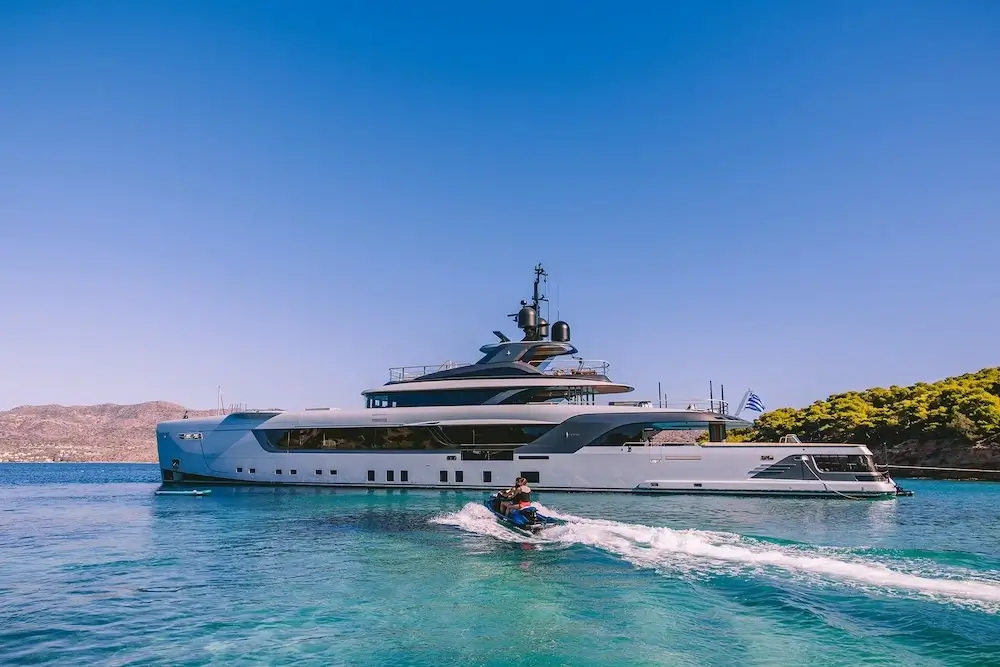Understanding Yacht Rentals: Expert Advice, Planning Help, and Useful Facts
Yacht rentals have become an increasingly popular way for people to enjoy leisure time on the water, whether for a few hours, a weekend escape, or an extended voyage. With charter options ranging from small sailing yachts to luxury superyachts, this form of travel offers both flexibility and privacy.
This guide breaks down the key elements of yacht rentals, including why they matter, what’s new in the industry, regulations to know, tools for easy planning, and answers to frequently asked questions.

What Are Yacht Rentals and Why Do They Exist?
Yacht rentals (also called yacht charters) allow individuals or groups to lease a yacht for a short period of time. These rentals can be self-operated (bareboat charter) or come with a crew (crewed charter), depending on the experience level of the renter and the size of the vessel.
The purpose of yacht rentals is to offer an alternative form of travel and recreation. Unlike cruises or hotels, renting a yacht provides a unique and private environment where travelers can explore coastlines, islands, and open water at their own pace.
Yacht rentals are used for:
Vacations and weekend getaways
Celebrations like weddings, birthdays, and anniversaries
Corporate retreats or business meetings
Adventure trips, diving, and water sports
Why Yacht Rentals Matter Today
Yacht charters have evolved from being an elite-only experience to a more accessible form of recreation. Several factors contribute to their growing relevance:
1. Demand for Private and Safe Travel:
Post-pandemic travel trends have favored private experiences. Yachts offer isolated, crowd-free environments while still enabling exploration and luxury.
2. Growth in Coastal Tourism:
As interest in maritime tourism grows globally, yacht rentals offer direct access to lesser-known islands, bays, and marine parks that are not reachable by large cruise ships.
3. Flexible Vacation Options:
Renters can plan short or long itineraries, select destinations based on interest, and customize onboard amenities. This adaptability suits various budgets and preferences.
4. Economic Impact:
The yacht rental industry supports marine tourism, coastal businesses, and local economies in destinations like the Mediterranean, Caribbean, Southeast Asia, and Australia.
Trends and Updates in Yacht Rentals
Recent developments have reshaped how yacht rentals operate, both in terms of technology and consumer behavior:
Increasing Demand for Eco-Friendly Yachts
More operators are offering electric or hybrid-powered yachts in response to climate concerns. In 2024, several Mediterranean fleets introduced solar-assisted catamarans.
Growth of Online Yacht Booking Platforms
Apps and websites like GetMyBoat, Click&Boat, and Boatsetter have made booking simpler. As of 2025, over 60% of global yacht charters are booked online.
Rise of Remote Work Charters
“Work from yacht” charters gained momentum in 2024, offering Wi-Fi-equipped yachts for extended remote working holidays.
More Affordable Day Rentals
Day and half-day charters have expanded in markets like Thailand, Croatia, and the U.S., making yachting more budget-friendly for casual users.
| Trend | Details |
|---|---|
| Eco-friendly yachts | Electric, solar-powered options rising in popularity |
| Online booking platforms | Increased user trust, ease of use |
| Remote work experiences | Yachts with high-speed internet for working on board |
| Shared charters | Fractional rentals and yacht-sharing for individuals |
Regulations and Legal Considerations
Yacht rental is governed by local maritime laws, insurance requirements, and port regulations. Some key areas to consider include:
Charter Licensing
In countries like Greece, Italy, and the U.S., commercial yacht charters must operate with licensed captains and meet coast guard standards. Bareboat charters often require a valid boating license or experience declaration.
Safety Requirements
Yachts must carry life jackets, fire extinguishers, navigation equipment, and safety protocols. In most countries, this is strictly enforced by maritime authorities.
Customs and Port Entry Rules
For international routes, renters may need to submit passenger lists, complete customs forms, and pay port fees. This is common in regions like the Caribbean and Southeast Asia.
Insurance
Comprehensive insurance (covering vessel damage, personal injury, and third-party liability) is usually mandatory. Rental agreements often include insurance or require renters to purchase it separately.
Tools and Resources for Yacht Rental Planning
Planning a yacht charter is easier with the right tools. Here are some helpful platforms and resources:
Booking Platforms:
GetMyBoat – Day charters and small boats worldwide
Click&Boat – Europe-focused options
Boatsetter – U.S. and Caribbean focus
Cost Calculators:
Many booking platforms include budget estimators that factor in fuel, skipper, and port fees.
Itinerary Planners:
Navily – Crowd-sourced marina reviews and route planning
Savvy Navvy – Navigation app for routes and weather
Checklists & Templates:
Packing checklist (sun protection, soft luggage, seasickness meds)
Meal planning template for crewed vs self-catering
Safety briefing templates for bareboat renters
Frequently Asked Questions (FAQs)
1. Do I need a license to rent a yacht?
It depends on the type of charter. For bareboat (self-operated) charters, you usually need a recognized boating license or sailing certification. Crewed charters don’t require renter licenses.
2. How much does a yacht rental cost?
Prices vary widely. A small motorboat might cost $200–$500 per day, while a luxury yacht can cost $5,000–$50,000 per week. Additional costs may include fuel, food, port fees, and crew tips.
3. What’s included in a crewed yacht charter?
Crewed charters typically include a captain and sometimes a chef and additional staff. Meals, water sports equipment, and cleaning are often included, but always check what's covered in the agreement.
4. Can I rent a yacht for just one day?
Yes, many companies offer day rentals, especially in tourist destinations. These are great for parties, short cruises, or exploring nearby islands.
5. What’s the best season to rent a yacht?
It depends on the region. The Mediterranean is best between May and September, the Caribbean from December to April, and Southeast Asia from November to February. Avoid monsoon or hurricane seasons.
Conclusion
Yacht rentals offer a flexible, scenic, and memorable way to travel—whether you're exploring a coastline for a day or setting sail for a week-long journey. With a range of boats, customizable services, and digital tools to simplify planning, yacht charters are more accessible than ever.
Understanding the legal, financial, and practical aspects of yacht rentals ensures a safe and smooth experience. Whether you're a first-timer or a seasoned sailor, staying informed helps you make the most of your time on the water.
For more information, explore official yacht rental platforms, check local maritime rules, and use digital navigation tools to plan your next sea adventure.






